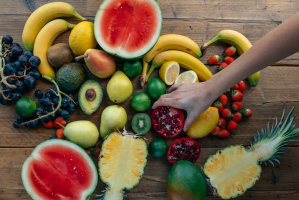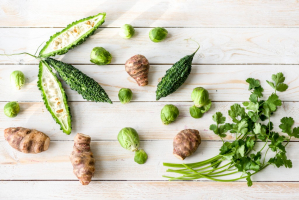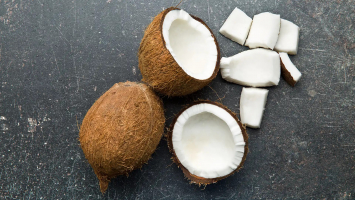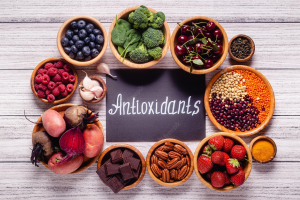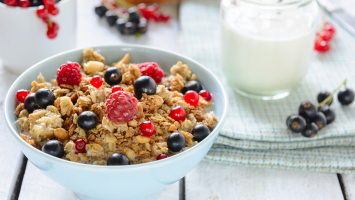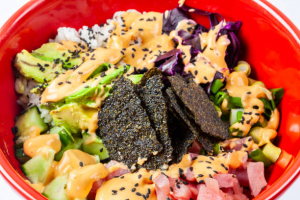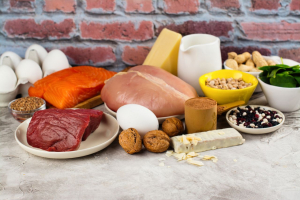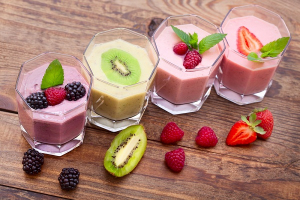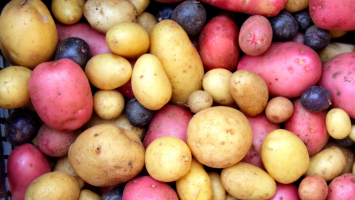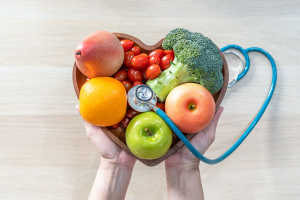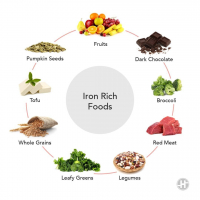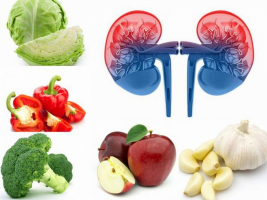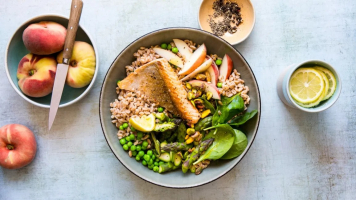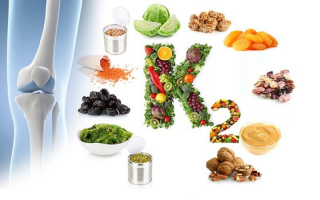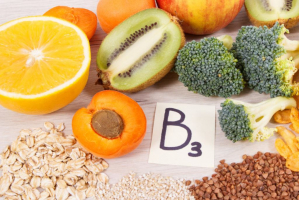Top 10 Healthy Foods Can Be Unhealthy When You Overeat Them
It might seem like eating lots of healthy foods is never harmful. However, many of us fall into the trap of eating fruits and vegetables without realizing that ... read more...they can be just as harmful as sugar or sodium. Luckily, we can avoid all the side effects by eating in moderation. Toplist.info found foods that might harm your health if you do not have the right diet.
-
Carrots are full of vitamins, minerals, and fibers that are good for your health. But eating too many carrots can bring in too much beta-carotene the molecule responsible for carrots' bright orange hue and a precursor of vitamin A. This situation can lead to excess blood carotene which can discolor the skin.
Known as carotenemia, the condition occurs because carotene is a fat-soluble molecule. Excessive quantities of it tend to accumulate in the outermost layer of skin, resulting in yellow- or orange-pigmented skin, particularly in the palms, soles, knees, and nasal area.
Although carotenemia occurs mostly in infants when they are fed too much-pureed carrots, it can occur in adults as well. In a case report published in The Journal of Dermatology in 2006, a 66-year-old woman's skin turned yellow-orange after she took too many carotene oral supplements. According to the U.S. Department of Agriculture's Nutrient Database, one cup of raw chopped carrots has about 15 mg of carotene. Therefore, you would need to eat half a cup of chopped carrots every day for months to turn to her shade of yellow. Despite such dramatic outward appearance, carotenemia is a mostly harmless condition and is often reversible.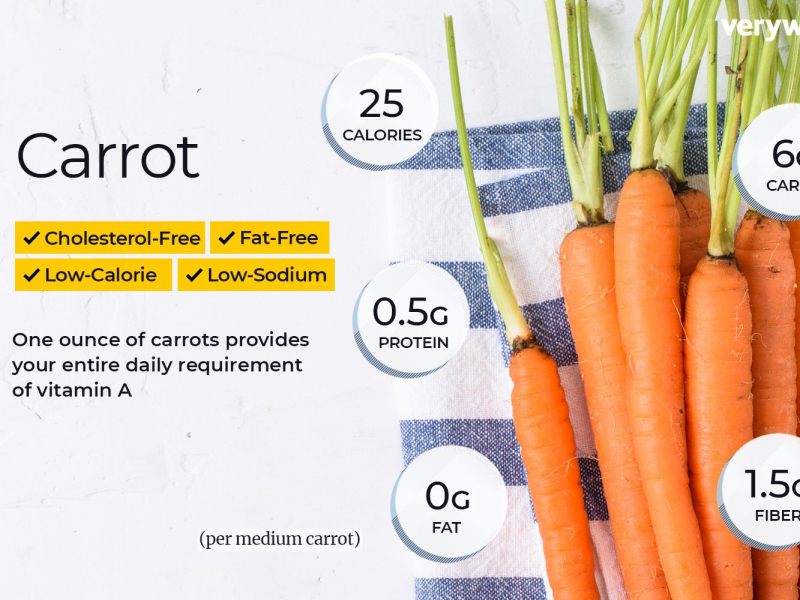
Carrots are a food rich in beta-carotene 
Eating a lot of carrots will make your skin turn yellow -
Bananas are a healthy addition to almost any diet, but too much of any single food, including bananas, could do more harm than good. Bananas are not typically considered a high-calorie food. However, if your banana habit is causing you to eat more calories than your body needs, it could lead to unhealthy weight gain.
Additionally, over 90% of the calories in bananas come from carbs. In unripe or green bananas, the main source of carbs comes from starch. As the fruit ripens, the starch converts to sugar. Thus, by the time your banana is ripe enough to eat, a large proportion of the calories may be coming from sugar. Carb over-consumption without balancing it with proteins and healthy fats could make blood sugar control more difficult for those with blood sugar conditions, such as diabetes.
Additionally, eating too many bananas may lead to nutrient deficiencies, especially if you’re not making room for foods that contain the nutrients bananas are lacking, such as protein, fat, calcium, vitamin D, and iron. Therefore, we should eat 2 bananas a day to have a healthy amount.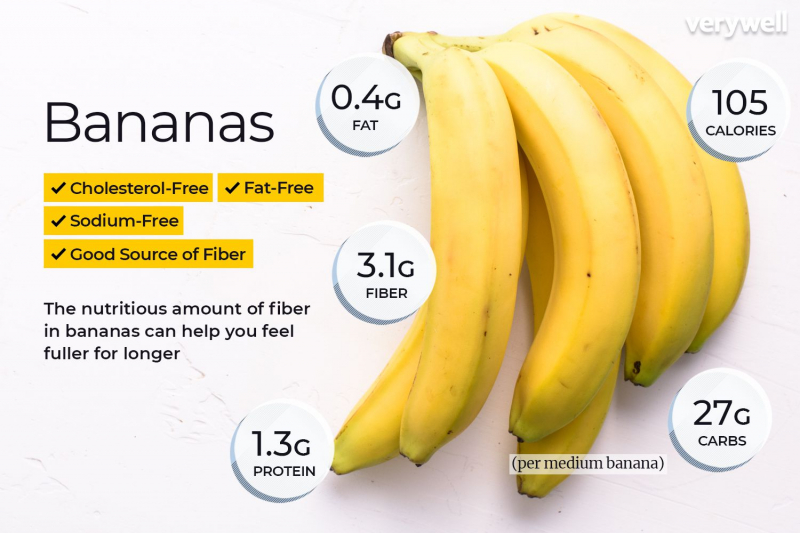
Bananas are a healthy addition to almost any diet 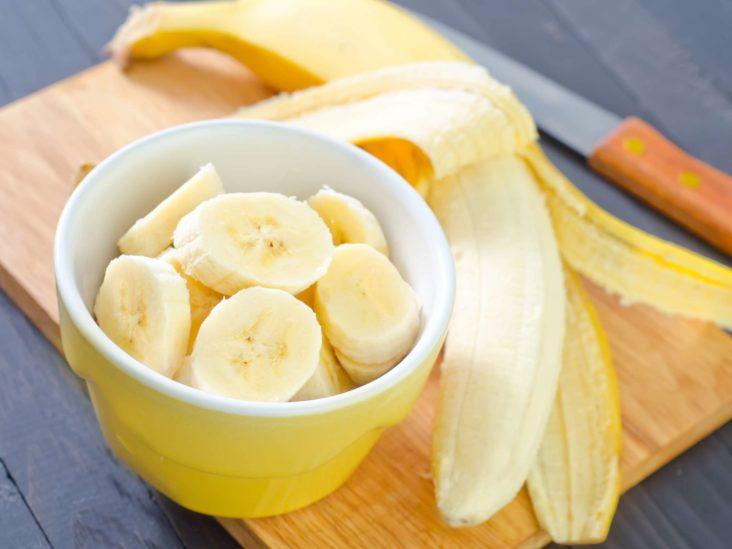
When bananas are ripe, a large proportion of the calories may be coming from sugar -
The conventional guideline of drinking eight glasses of water a day has proven to be a myth. But there is such thing as drinking too much water. Water intoxication occurs when a person drinks so much that the water dilutes the concentration of sodium in the blood, creating an electrolyte imbalance.
Water intoxication, known as hyponatremia, is mostly a risk for endurance athletes. A 2005 article in the New England Journal of Medicine found that 13 percent of 488 runners in the 2002 Boston Marathon developed hyponatremia from drinking too much water. According to the researchers, a relatively simple strategy to reduce that risk would be for runners to weigh themselves before and after training runs to gauge their overall fluid intake and ensure they do not drink too much water during exercise.
Drinking too much water can create an electrolyte imbalance by pushing sodium levels to the floor when your kidneys can't handle it anymore. Another consequence in severe cases is the accumulation of water in the brain causing it to swell and increase pressure because the human skull cannot expand.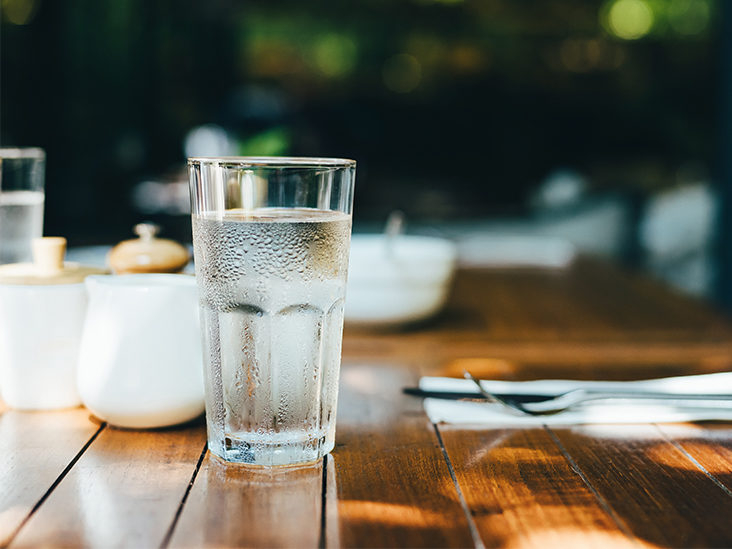
Drinking too much water can create an electrolyte imbalance in the body 
Water intoxication occurs when a person drinks so much -
Red beetroot is a great addition to any winter dish. This veggie not only adds a subtle sweetness and an appealing deep red color to any meal, but it also packs a lot of health benefits. Red beetroot is an excellent source of vitamins and minerals. It's also high in nitric oxide, which your body converts into nitrates that can help lower your blood pressure.
Red beetroot also contains another important antioxidant called lutein, which plays an important role in maintaining eye health. Lutein is a carotenoid that helps prevent macular degeneration that can occur with age. Beetroot juice produces nitric acid, which increases blood flow to the brain, reducing the risk of dementia.
However, beetroot can cause some negative side effects if consumed in excess in a short time. They contain high levels of oxalate, a compound that can attach to other minerals in the body. This can interfere with mineral absorption or lead to the accumulation of small crystals, causing kidney stones. Although beets have powerful nutritional effects, it is better to eat them in moderation, especially for people who are prone to kidney stones. If you suffer from gout, you may want to avoid red beetroot. The oxalate in beets can cause a rise in uric acid, which can worsen gout.
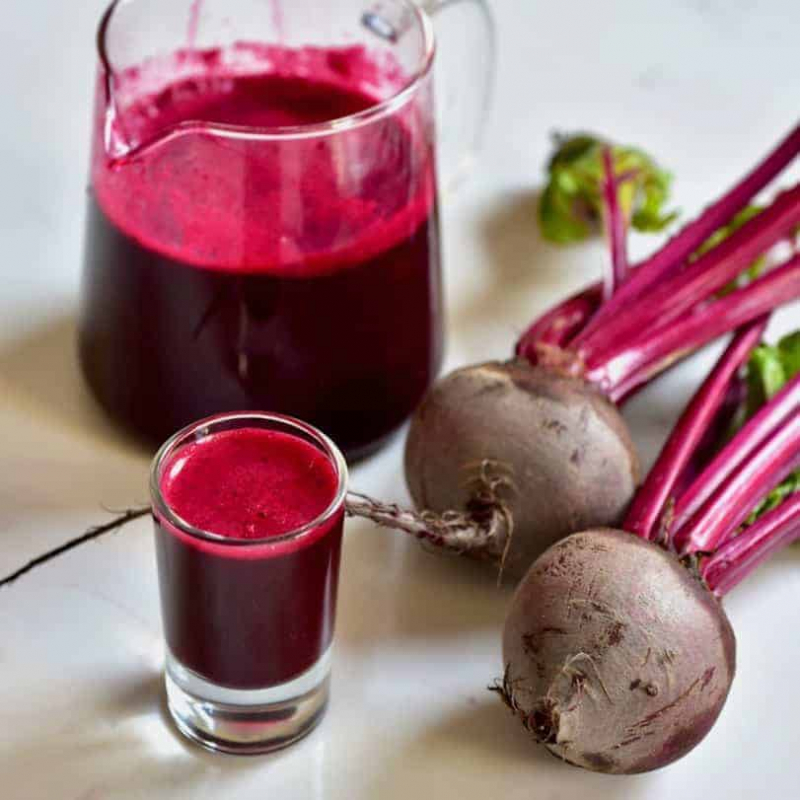
Red beetroot is an excellent source of vitamins and minerals 
However, red beetroot can cause some negative side effects if too many are consumed -
Oats truly is one of the healthiest breakfast foods you can eat. Oats are proven to be the best breakfast for longer life. However, while oats are full of numerous health benefits like having a good amount of healthy dietary fiber eating too many oats can create some negative side effects on one's body.
Firstly, a lot of people like their oats sweet. These people like adding sugar, chocolate chips, and other sweet items, which ultimately decreases the overall nutritional value of oats by adding extra calories, sugar, carbs, and fat to it.
Secondly, no doubt, adding oats to your daily breakfast provides you with energy and nutrition to start your day. But eating it every day imposes restrictions on other varieties of foods you can eat in the morning. Eating a variety of foods provides you with all types of nutrients required for a healthy start to the day.
Thirdly, though oats are said to help you lose weight, having too much of it can lead to malnutrition and muscle mass shedding. This is because oatmeal is rich in fiber, which keeps you full for longer, so your body loses the ability to signal you to eat more throughout the day. Eating just oats can interfere with your cognitive functions and lessen your alertness and sharpness. Limits the absorption of calcium, magnesium, and zinc. Therefore, eating 3-6 ounces per day is healthy, depending on your daily calorie intake.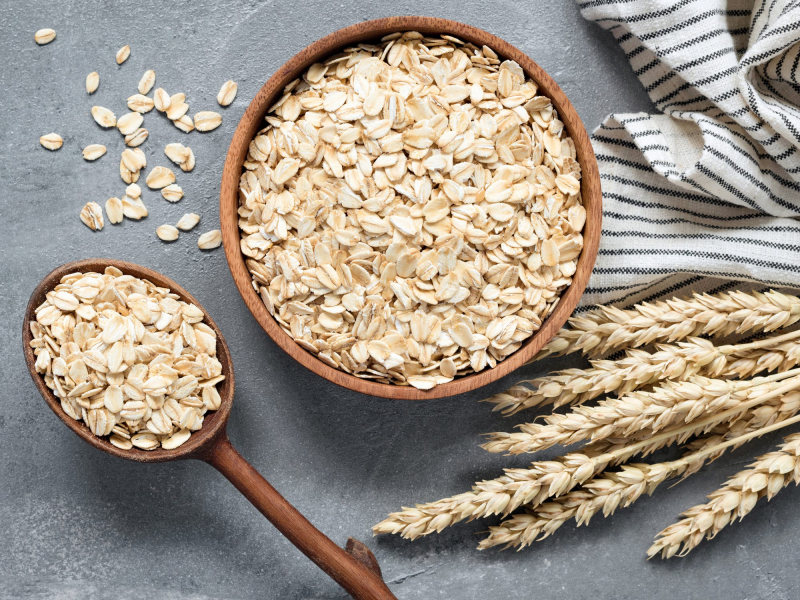
Oats truly is one of the healthiest breakfast foods you can eat 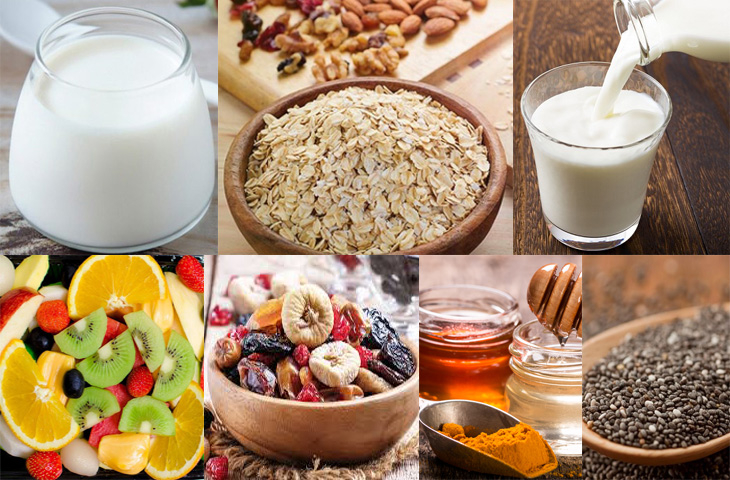
Having too much of Oats can lead to malnutrition and muscle mass shedding -
Can you name something more delicious than cheese? Whether it's melted on crispy pizza, a burger, between two slices of bread, or eaten on its own with crackers or fruit, the star of the dairy food group comes in a plethora of different types and flavors, and is arguably one of the tastiest foods around. But if you happen to eat too much cheese, it will harm your health.
It may not be a surprise that consuming cheese can be a driver of weight gain, which is evident in a 2016 study. This is especially common when it's consumed in high amounts or with other not-so-healthy foods. Depending on which type of cheese you choose, you could be adding as much as 100 calories per ounce of cheese since it's rare that you will eat just one ounce at a time. You can take in 800 or 900 calories or even more if you keep eating pieces throughout the day. That can ultimately lead to weight gain. Large portions of cheese put you at a higher risk of heart disease. This type of food is high in saturated fats which are notorious for causing coronary heart disease. Cheese also often causes heartburn due to the hormone called cholecystokinin, which is released while eating.
Eating too much cheese or any dairy for that matter has been linked to the risk of stomach issues, such as gas and bloating, especially for those who may be lactose intolerant. Although cheese is a lower lactose food with one ounce of sharp cheddar cheese, mozzarella cheese, and Swiss cheese providing less than 0.1 grams of lactose, there may be a limit that your body can tolerate at one time. Eating an amount of lactose greater than the body's ability to digest it can lead to gastrointestinal disturbances, which is the definition of lactose intolerance.
Overindulging in cheese can also make it difficult to go to the bathroom. Although cheese is a good source of protein, it is not a source of fiber. If you are eating your cheese with an already low fiber eating plan, you will feel the effects of constipation.
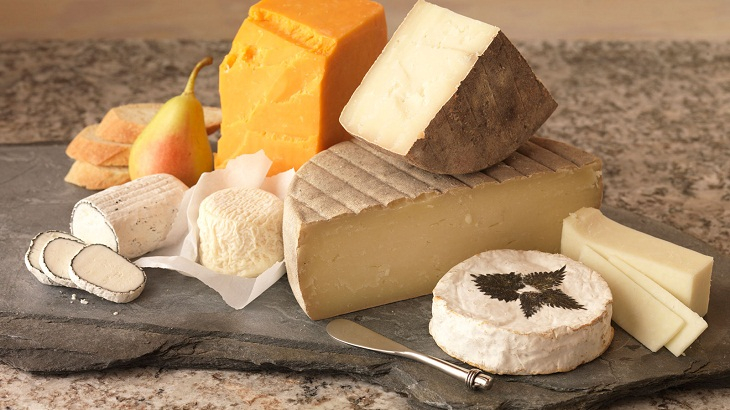
Large portions of cheese put you at a higher risk of heart disease 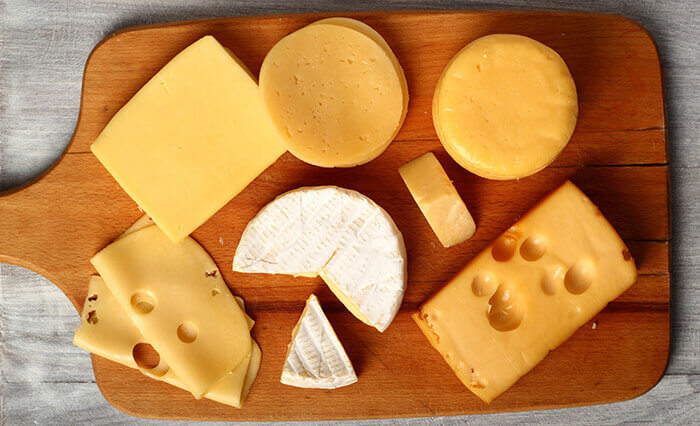
It may not be a surprise that consuming cheese can be a driver of weight gain -
Rice is one of the important foods in the meals of many countries around the world. Rice not only provides starch to maintain brain activity but also contains essential nutrients for the body. Eating too much rice can give you too many carbohydrates and not enough vitamin C. It can also increase your risk of type 2 diabetes and cardiovascular disease.
There are also small amounts of vitamins like folate and thiamine, as well as minerals like potassium, phosphorus, and iron. There is no vitamin C, vitamin A or vitamin D in rice, and very little sodium, even in fortified short-grain white rice. Unenriched short-grain white rice contains even less of these vitamins and minerals.
Rice has a minimal amount of important macro and micronutrients. Eating too much rice and not enough other foods with diverse nutrients can leave you with nutrient deficiencies. Your diet should mainly include a variety of fruits, vegetables, and protein, depending on your health condition and age.
Although rice is delicious, it contains very few vitamins. If you eat too much rice, you will deprive yourself of all other vitamins. It also causes your insulin levels to spike. Most importantly, it can cause poorer mental performance from low levels of arsenic exposure. Researchers recommend getting between 45% and 65% of your daily calories from carbohydrates. For a person consuming 2,000 calories per day, that's between 900 calories and 1300 calories from carbohydrates. The norm is usually about 90 grams of uncooked rice per meal.
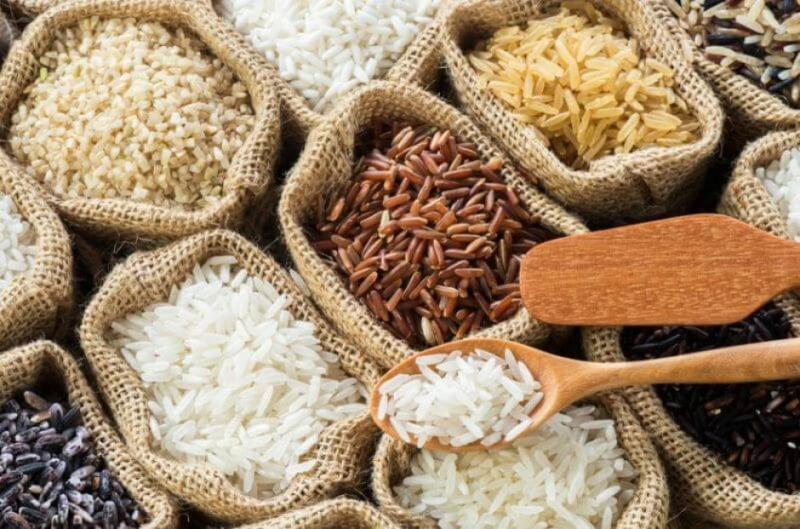
Eating too much rice could provide you with too many carbohydrates and not enough vitamin C 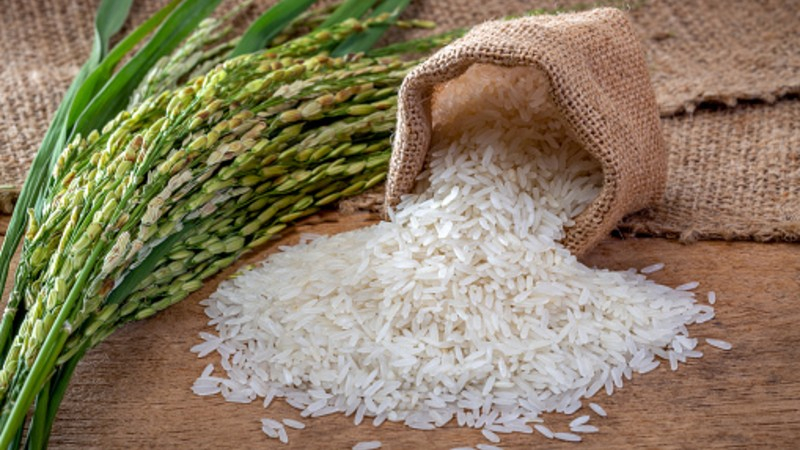
There is no vitamin C, vitamin A or vitamin D among the vitamins in rice -
For years, it has been known that to live a healthier lifestyle, one would need to incorporate not only exercise and fruits but also a good dose of vegetables. Eating vegetables offers a myriad of benefits to human bodies and can even help lower the risk of people developing chronic diseases like diabetes and cardiovascular disease, to name a few. But what happens when you eat too much of a good thing? Can too much broccoli be a bad thing for people to eat? Broccoli has a lot of nutrients needed for breathing muscles, a sufficient amount of broccoli per day contains even more protein than in beef.
So if veggies are so healthy, how can broccoli be bad? According to Health Digest, cruciferous vegetables which include things like broccoli, arugula, cauliflower, and kale (to name a few) are known to be extremely healthy. But along with all the nutrients like fiber, folate, and vitamins, they also carry something known as goitrogens (or goiter). It affects the thyroid gland and prevents it from being able to absorb the necessary amounts of iodine it needs. When the thyroid gland doesn't get enough iodine, it can not create the necessary compounds it needs to help the body's metabolism function properly.
Have you ever found yourself experiencing a slight tingly feeling in your mouth whenever you've eaten a raw fruit or veggie? According to National Jewish Health, if you've ever eaten raw fruits and vegetables like apples, broccoli, carrots, oranges, tomatoes, bananas, watermelon, and you have experienced a tingly feeling you may be allergic. If you have this feeling whenever eating raw fruit or veggie, then you may have something called oral allergy syndrome.
It’s better to avoid consuming more than 4 cups a day.
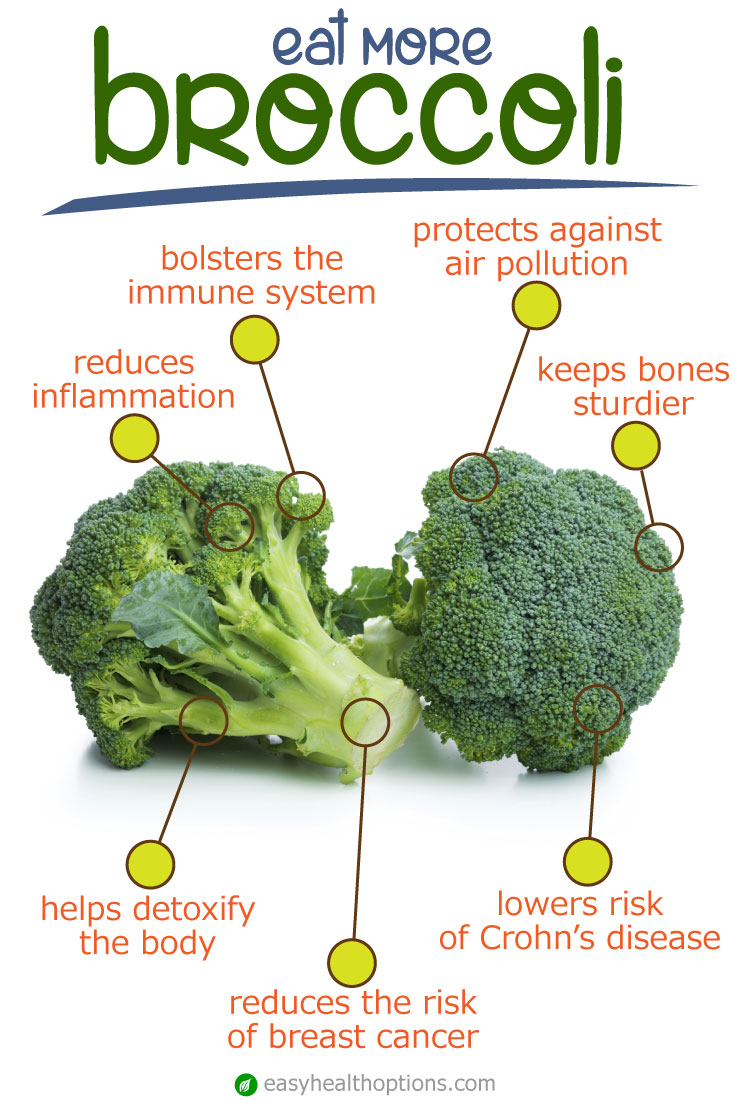
The nutrients in broccoli like fiber, folate, and vitamins also carry something known as goitrogens 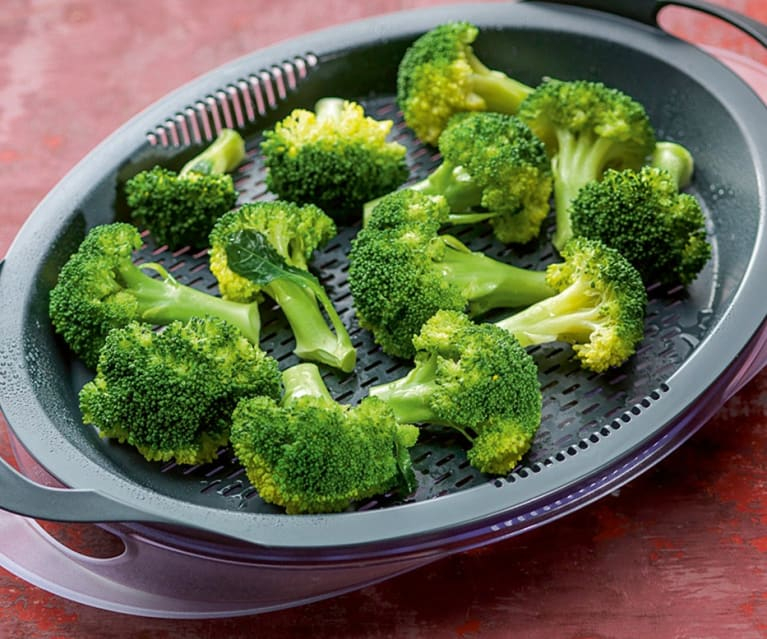
You may have something called oral allergy syndrome when you eat too much broccoli -
Packed with antioxidants, blueberries provide both flavor and nutrition. As reported by My Food Data, a one-cup serving has just 84 calories and 3.6 grams of fiber. It also provides 16% of the recommended daily intake of vitamin C, 24% of vitamin K, and 22% of the recommended. These tiny fruits are also rich in phenolic acids, quercetin, anthocyanidins, and other compounds with antioxidant activity. The question is what happens when you eat too many blueberries?
Most fruits, including blueberries, are relatively high in fiber. When consumed in excess, this nutrient can cause bloating, diarrhea, and mineral deficiencies. In general, women should not exceed 25 grams of fiber per day. On the other hand, men should consume about 38 grams per day. While it's unlikely to get too much fiber from blueberries alone, you may feel bloated after eating three or four cups of berries, especially if you increase your fiber intake too quickly. Even the healthiest foods can be harmful when consumed in large amounts. Blueberries are no exception.
Eating blueberries every day can make it easier to get more vitamins, minerals, and antioxidants into your diet — just make sure you don't go overboard. These dark-colored fruits boast over 21 grams of carbs, including 14.7 grams of sugar, per cup (via My Food Data). The same amount of strawberries, by comparison, contains 11 grams of carbs — including 7 grams of sugar in the form of fructose. Watermelon, oranges, and other fruits are much lower in sugar than blueberries, too. If you eat three cups of blueberries per day, you'll get nearly 65 grams of carbs and 44 grams of sugars. This could lead to weight gain and hyperglycemia in the long run.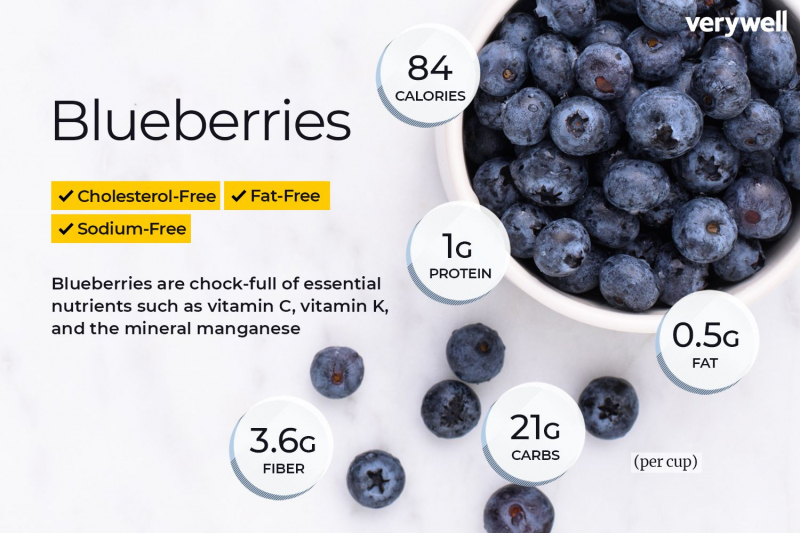
You may feel bloated after eating too many blueberries 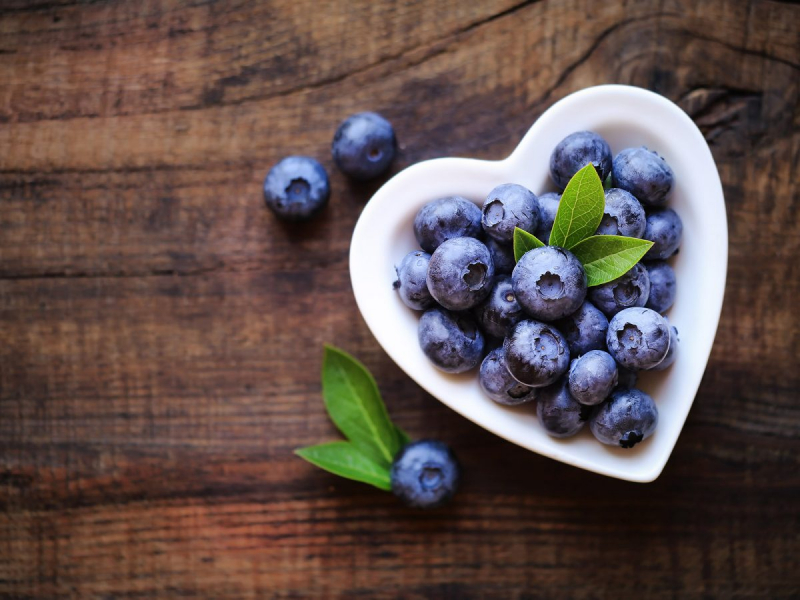
A one-cup serving of blueberries has just 84 calories and 3.6 grams of fiber -
Whether you prefer spreading it on toast, tossing it onto a salad, slicing it on a sandwich, there's no denying that avocado has become a bona fide culinary craze in recent years. And even though avocado does boast so-called "healthy" fats, it is possible to have too much of a good thing. So, what exactly happens when you eat too much avocado? Well, experts say that consistently overdoing it could potentially negate some of the benefits of eating too much over the long term.
The fat in avocado is primarily monounsaturated, which lowers 'bad' LDL cholesterol, and may increase 'good' HDL cholesterol, reducing the risk of heart disease. It is also a powerhouse source of nutrients, with high levels of vitamin K, folate, potassium, and many B vitamins
Let's get one thing clear. Fat is not something to be feared and, it is an essential substance that protects your organs, gives you energy, and helps your body better absorb certain vitamins. One medium avocado contains 227 calories and 21 grams of fat, which is pretty eye-opening when you consider that the daily recommended intake for fat is about 44 to 77 grams if you eat 2,000 calories a day.
Avocado can be a super easy food to overeat because it has a high energy density, meaning that it has a high number of calories in a very small portion. Since avocados are a great source of nutrients and healthy fats, there are worse foods to overeat. However, as with any food, eating avocados in excess will lead to weight gain. If eating large amounts of avocado in a day results in taking in more calories than an individual burns, the excess energy will be stored as fat. More than the recommended amounts of fats in a day does not add any additional nutritional benefit, even if these are considered "good" fats.
Just because you aren't allergic to avocados doesn't mean it won't cause an adverse reaction. Avocados contain small-chain carbohydrates called polyols that can have a laxative-like effect when consumed in large quantities. And if you have an avocado intolerance or sensitivity to these natural sugars, you may also experience bloating, gas, or an upset stomach up to 48 hours after eating it. A person should eat about half or 1 avocado per day.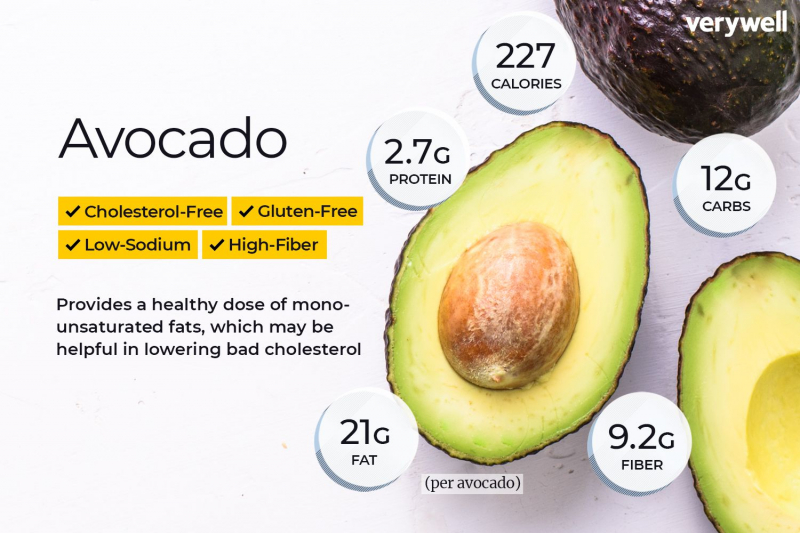
One medium avocado contains 227 calories and 21 grams of fat 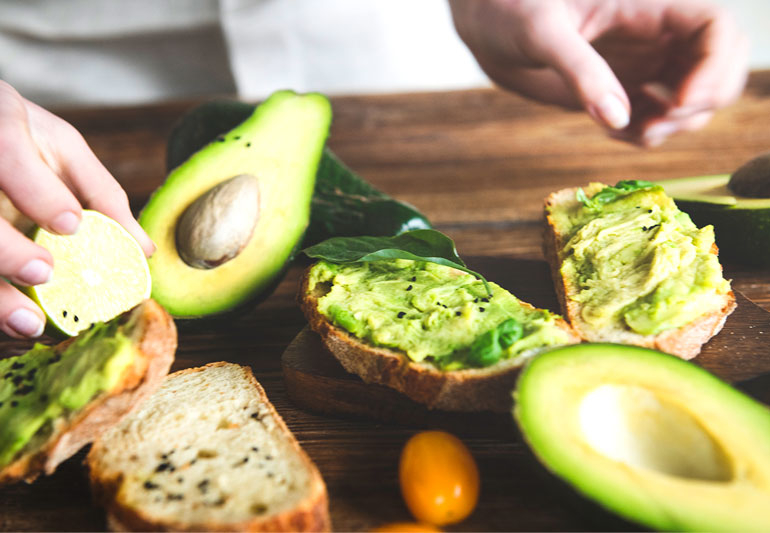
If eating large amounts of avocado in a day results in taking in more calories than an individual burns













